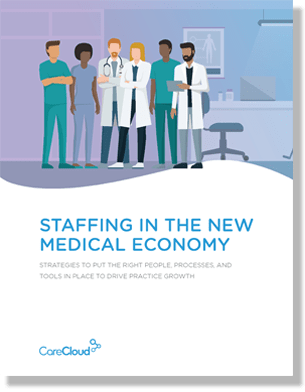What is Principal Care Management?
Principal care management (PCM) is a care management model set for patients with a single chronic disease for three months or more. The patient must have had a recent hospitalization, an acute risk of death, exacerbation, or functional decline, or require management that’s “unusually complex due to comorbidities.”
With PCM, the provider helps stabilize the patient’s condition quickly so that the patient can be re-transferred to their primary care provider. The process usually involves a qualified professional creating a personalized care plan for the patient. The professional also assesses whether any changes need to be made in the care plan, which is built into the reimbursement guidelines as qualifying conditions are those that require frequent adjustments.
Then, the staff, under a physician’s or qualified professional’s supervision, carries out that care plan, ensuring proper monitoring and management of the patient’s condition.
Requirements for Principal Care Management
Before learning about the different codes set for principal care management (PCM), let us discuss what patients are eligible for PCM programs. The following are the requirements for patients qualifying for PCM services:
- One “complex chronic condition lasting at least three months, which is the focus of the care plan.”
- A condition that’s “of sufficient severity” to put the patient “at risk of hospitalization” or “has been the cause of a recent hospitalization.”
- A condition that requires the “development or revision” of a disease-specific care plan
- A condition that requires “frequent adjustments in the medication regimen and/or the management of the condition is unusually complex due to comorbidities.”
Principal Care Management CPT Codes
Since PCM was introduced in 2020, it is still a relatively new care management model. Until 2021, CMS offered reimbursement for PCM through two HCPCS codes:
Code G2064: Minimum 30 minutes of the physician’s or another qualified health care professional’s (QHP) time per calendar month
Code G2065: Minimum 30 minutes of clinical staff time as directed by a physician or QHP
However, in 2022, Medicare deemed these two HCPCS II codes obsolete and introduced four new CPT codes to reimburse principal care management. These include:
CPT 99424
This is an expansion of what was previously provided by G2064. It constitutes the initial 30 minutes of PCM services provided every month for developing a disease-specific treatment plan by a physician or qualified healthcare professional. The eligible billing practitioners for CPT Code 99424 are physicians or qualified healthcare professionals.
Reimbursement
For every 30 billable minutes, the reimbursement for CPT 99424 is $83.40 per patient per month (PPPM).
CPT 99425
CPT Code 99425 covers each additional 30 minutes provided by a physician or qualified healthcare professional per calendar month. This includes the continuous revisions in the care plan. These revisions do not only have to be a part of principal care management but can also be built into the procedure. The eligible billing practitioners for CPT Code 99425 are physicians, or QHPs.
Reimbursement
For every 30 billable minutes, the reimbursement for CPT 99425 is $60.22 per patient per month (PPPM).
CPT 99426
CPT Code 99426 covers the first 30 minutes of PCM clinical staff time, as executed by clinical staff under the supervision of a physician or qualified healthcare professional. The eligible billing professionals for CPT Code 99426 are clinical staff who work under the supervision of a physician or QHP (often an advanced practitioner, like a PA or NP).
Reimbursement
For every 30 billable minutes, the reimbursement for CPT 99426 is $63.33 per patient per month (PPPM).
CPT 99427
CPT Code 99427 covers each additional 30 minutes of PCM clinical staff time carried out by clinical staff under the supervision of a physician or QHP. The eligible billing professionals for CPT 99427 are clinical staff members working under a physician’s or QHP’s supervision.
Reimbursement
For every 30 billable minutes, the reimbursement for CPT 99427 is $48.45 per patient per month (PPPM).
Billing for Principal Care Management
CMS has defined certain billing rules for physicians providing principal care management. Another distinction between chronic care management and PCM is that for CCM, the requirement for billing is 20 minutes, while for PCM, it is 30 minutes. When billing for PCM, it is important to keep five things in your claim:
- CPT code for the program
- ICD-10 codes for the condition you are managing
- Place of service
- Date of service
- National Provider Identifier (NPI) number
Billing for PCM is done in four steps:
- Verification of CMS requirements for each patient every month.
- Submission of claims to CMS monthly.
- Monthly invoice sent to patients enrolled in PCM services.
- Verifying that there are no conflicting codes sent for billing.
Conclusion
The principal care management model opens up new opportunities for providers to improve the quality of patient care and increase access to care. With the help of this guide, providers can accurately bill for PCM services and avoid denials.
CareCloud is introducing principal care management services into its digital health Wellness suite. With the help of this solution, practices can experience seamless workflow and an improved revenue cycle.




